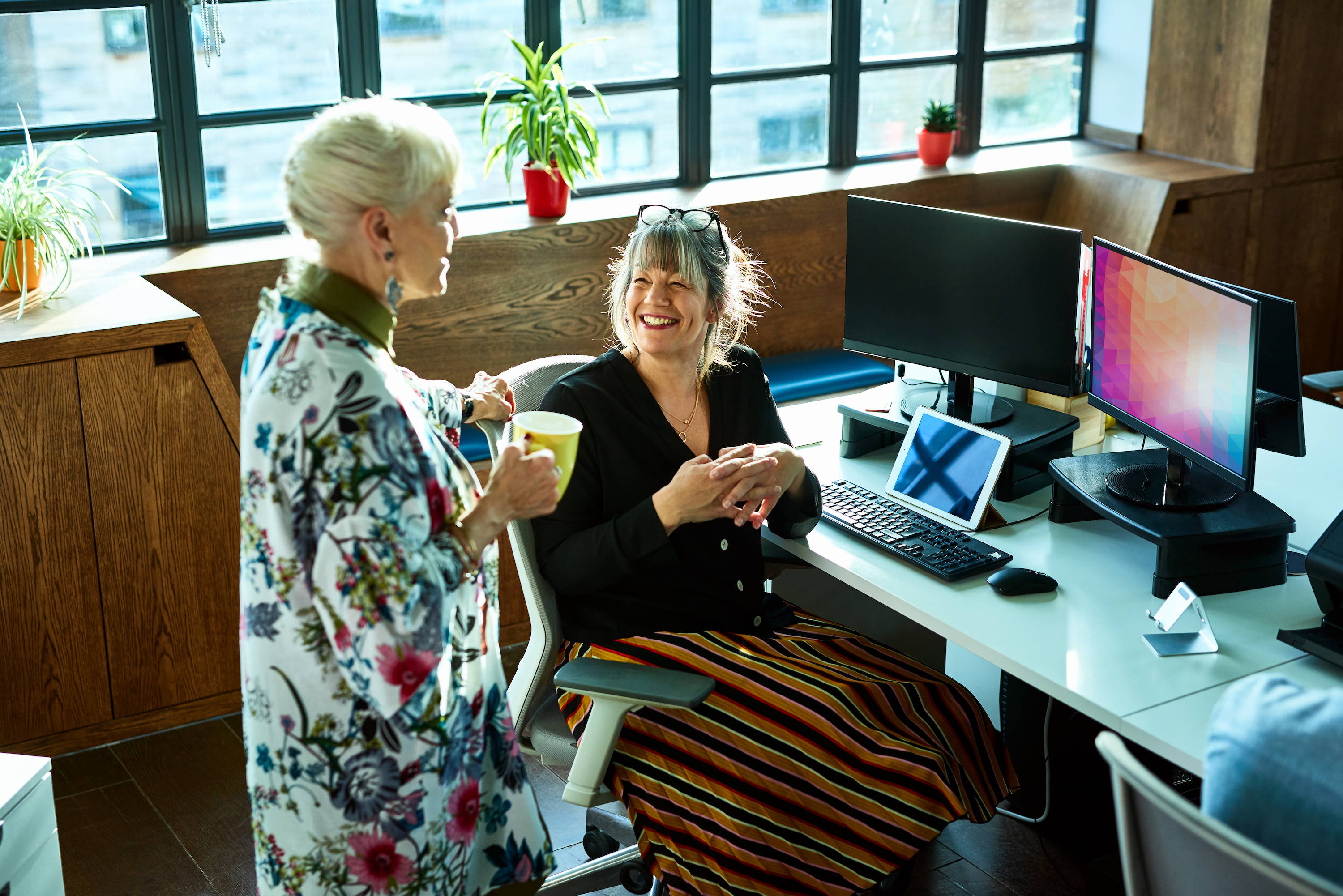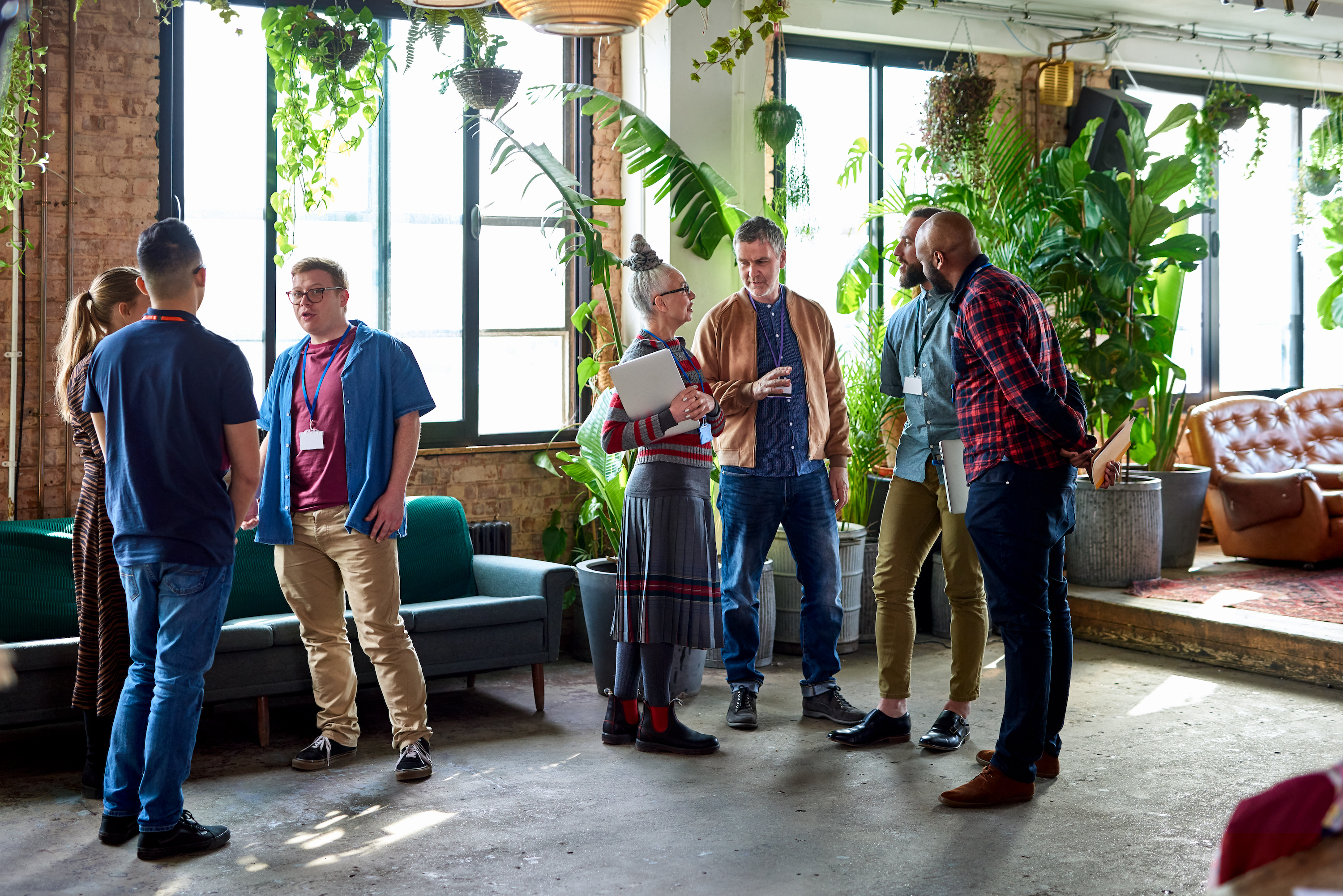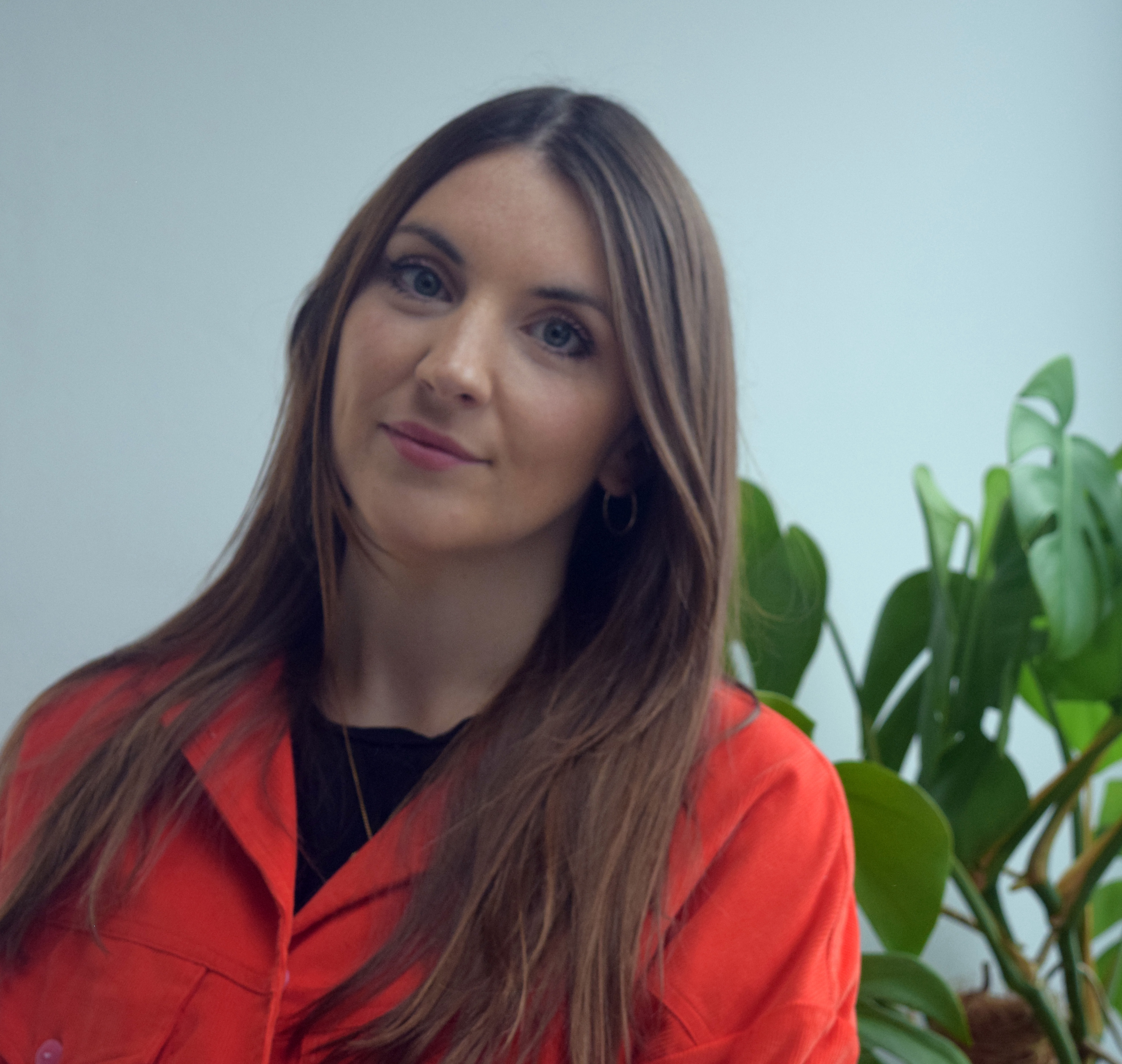Why we can't help bringing our emotional baggage to work, and what to do about it
UK author Gabriella Braun tells Marie Claire why we need to embrace our whole selves at work, including our emotions


Celebrity news, beauty, fashion advice, and fascinating features, delivered straight to your inbox!
You are now subscribed
Your newsletter sign-up was successful
UK author Gabriella Braun tells Marie Claire why we need to embrace our whole selves at work, including our emotions
You might already be familiar with the ways romantic relationships can trigger our emotional baggage, especially in light of attachment theory, which explains how our early childhood experiences can shape the kind of partner we are and who we’re attracted to.
But you might be less aware of how old traumas can play out in your work life. Author Gabriella Braun believes that while it might not be as obvious when our emotional baggage is impacting our behaviour in the workplace, it will certainly be happening. In her new book, All That We Are: Uncovering the Hidden Truths Behind Our Behaviour at Work, Gabriella recounts stories from her 20 years of working as a consultant to bring psychoanalysis into the staff room.
“In the workplace, we're in a group of people that we usually didn't choose to be with,” Gabriella tells Marie Claire. “We like some of them. We may really not like others. We've got to contend with all sorts of other things like power relationships, who earns more and who has authority over us. All these things can trigger our emotional baggage.”
Marie Claire caught up with Gabriella to find out about some of the most common emotional issues that people bring to the workplace, and how to deal with them.
Sibling rivalry at work
Psychologists believe that sibling rivalry begins very early on in our lives. Older siblings can find it tough when a new baby is born in the family: suddenly they have to share and sometimes compete for their parents’ attention. Realising that you are no longer the centre of your parents’ world can be extremely painful.
We don’t tend to remember these early childhood experiences very clearly, but they are stored in our subconscious. Like a physical wound that hasn’t healed properly, part of us will remain fragile and sensitive to further injury.
Celebrity news, beauty, fashion advice, and fascinating features, delivered straight to your inbox!
So, if we experienced sibling rivalry as a child, we might get triggered by someone new joining the team and getting lots of attention from the boss.
“I've not come across a workplace where sibling rivalry isn't present,” says Gabriella. “And actually, why wouldn't it be? Because all our colleagues are, in a sense, like siblings. The hierarchy at work where our bosses have power over us mirrors that of families where parents have the authority.”

Reactions to authority
Gabriella explains that reactions to authority at work can often stem from psychological wounds.
“Our first authority figures were our parents, so we can experience any leftover feelings about that,” says Gabriella. For example, a parent might have been controlling or have mistreated us or undermined us in some way. “Even a sniff of something that we think might be going that way at work, will very likely press a button,” says Gabriella.
Having different opinions
Disagreements at work are common, even a necessary part of doing a good job as we navigate the best solution to a problem. But for some people, experiencing differences at work can be particularly challenging.
Gabriella explains that this can happen when we struggle to cope with early separations from our mother. “We had to learn that our mother is not just an extension of us, she's different. She's got her own life. She's got her own feelings,” says Gabriella. “That as a small child is really difficult because we're completely dependent on our parents for survival. So difference is quite an emotional topic.”

Unconscious role play
In group dynamics, people can end up playing different roles, such as “the peacemaker” or “the challenger” or “the supporter”. If we ended up in a particular role within our family dynamics, we can feel unconsciously drawn to resuming that persona at work. For example, we might find we’re always trying to de-escalate conflicts, or that we’re always the one to put our neck on the line when there is an issue. “We get pulled on unconsciously to take up certain roles in work, and they're not the formal roles we were allocated,” says Gabriella.
This can become problematic when the psychological roles we’re playing interfere with our actual roles or our career progression. If you’re always the one looking after other members of the team, for example, you might have less time to develop original ideas or take on an extra project.
The roles we play at work can be informed by gender stereotypes, too. “As women, we're often brought up to try and be what people want us to be,” says Gabriella. “We can reduce ourselves in that way. We might want to be angry, or to shine and be competitive, and that's healthy. Squashing those parts of ourselves is very unhelpful.”

Group defences
To make things more complicated, it’s not just your own traumas that will be impacting your behaviour at work. In fact, a big part of Gabriella’s work as a consultant is to ask what is the individual doing to create a certain dynamic, and what is the group doing?
She explains that as every member of an organisation brings their emotional baggage to work, their defences combine to form a certain psychological culture.
“The group will set up its own norms unconsciously,” says Gabriella. Perhaps, for example, no one opens up about what they get up to at the weekend, or bullying is considered normal. “People take on the defences of the organisation, which is why new people are often very good at seeing things that others don’t.’”
Okay, so we all bring our emotional baggage to work. But what can we do about it?
Gabriella explains that awareness about the psychological baggage we bring to work is critical to overcoming it. Understanding why you are reacting in a certain way can help reduce the heat in difficult moments, and also empower you to better communicate your needs with others. Gabriella recommends these steps:
1) Get to know yourself
If something has triggered you at work, ask yourself:
“When have I felt like this before?” “Does this situation at work remind me of anything else?” “When have I behaved like this before?”
The answers to these questions can give us clues about what we are really reacting to.
2) Talk it through
Analysing yourself objectively can be easier said than done, so Gabriella recommends reaching out for help. You could start seeing a therapist or coach, but talking to friends and colleagues you trust can also help you gain perspective.

3) Help to humanise the workplace
There are things we can do as individuals to make our workplaces feel more psychologically safe.
“Our feelings are there, like it or not. But we've gone horribly wrong in some of our workplaces,” says Gabriella. “The statistics for stress and depression and anxiety at work are terrible. The more we can humanise the workplace the better. This doesn’t mean turning organisations into therapy centres. It’s about allowing space for all of who we are, including our emotions. We need to include them and work with them, rather than put them under the carpet and become ill.”
We can all lead by example and challenge toxic group dynamics by showing our own vulnerability. Gabriella acknowledges that this will often feel like a “risk”, but she’s not talking about having public meltdowns or threatening to quit. “Can we be willing to say, ‘actually, that did quite upset me’ at work,” she says. “Or. ‘I'm struggling with this, is anybody else?’” By starting these kinds of honest conversations, we can sooner get to the heart of a problem.
Does any of this ring true for you?
Of course, sometimes a toxic workplace will have absolutely nothing to do with your own emotional baggage.
The most important thing to know is that if you’re struggling at work, you shouldn’t have to just put up with it. Self-reflection and support are always a good idea, but also remember that there are always going to be other great jobs out there that might suit you better.
